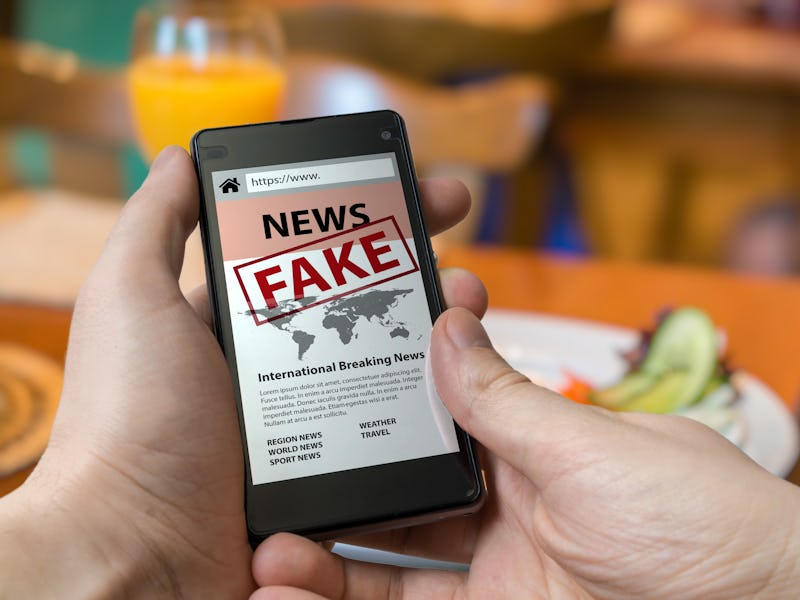Social media companies are still losing the fight against coronavirus disinformation
Social media companies are working harder than ever to fight it during the coronavirus outbreak. Is it enough?

Social media companies have failed to fight the spread of dangerous disinformation in the past, seen during the 2016 election and beyond. But it seems they're slowly starting to learn from their mistakes. With the coronavirus outbreak threatening to infect millions of Americans, companies like Twitter and Facebook are working overtime to fight disinformation to keep people safe, and their performance is improving. However, experts argue they still need to do more.
Millions of tweets have spread dangerous disinformation and misinformation about the coronavirus, and as we've reported, much of this disinformation is being spread by bots. Twitter says it's using a machine learning algorithm to help find and remove this kind of content. Twitter has been removing disinformation not just from bots or the average Joe but from some of the most influential people in the world.
Just in the past week, Twitter has removed posts that contained false information about the coronavirus from Donald Trump's personal attorney Rudy Giuliani, Brazil President Jair Bolsonaro and Fox News host Laura Ingraham. That's a step in the right direction, but disinformation remains prevalent on the platform, including disinformation being spread by Chinese officials that Twitter has refused to take down.
Facebook is working to fight the spread of disinformation on its platform, including by giving the World Health Organization free advertising to share updates, removing ads that feature coronavirus information, investing $100 million into news publications and more.
That said, many private Facebook groups are reportedly still filled with disinformation, and the Facebook-owned messaging app WhatsApp has been used to spread disinformation around the globe. Facebook was also accidentally removing legitimate news article about the virus for some time. Instagram, which is also owned by Facebook, only recently started working to seriously step up its fight against disinformation.
In response to coronavirus disinformation spreading like wildfire on its platform, YouTube is now removing any videos it finds that contain lies about the coronavirus, and it's giving governments and NGOs free ad space to share useful information about the virus. Google, which owns YouTube, is now putting information from NPR and the CDC at the top of searches related to the coronavirus.
With lives on the line, it's clear these companies understand the need to help people get accurate information. What's also clear is that these companies could do more.
As Politico noted just over a week ago, it's still not difficult at all to find coronavirus disinformation just by doing a quick search on social media. More disinformation is being spread than these companies have been able to take down. Most of it seems to be spread by accounts that are relatively small in influence, but enough of them spreading it can have a major impact.
See also: How robots and A.I. Could help save our healthcare workers and the elderly
Brooke Binkowski, managing editor of the fact-checking website Truth or Fiction and a disinformation expert, tells Inverse that there's still quite a bit more these companies could be doing to fight the spread of coronavirus disinformation.
"They are still not doing what they should be doing right now, which is to hire moderators," Binkowski says. "I don't care if there are problems checking their work remotely."
Binkowski says platforms like Facebook could easily hire journalists who are struggling to find work right now to fact-check content since they have the skills needed to do the work. She also says these companies should be more transparent about how their algorithms determine what is likely disinformation and what is not. She says these companies shouldn't allow anyone to spread disinformation, even if they're a political leader, and should seriously consider suspending accounts that repeatedly spread disinformation.
Social media companies are starting to improve how they fight disinformation, but there's still work to be done. If these companies allow too much disinformation to spread, people could die, and the outbreak could spread further than it would have otherwise.
The Inverse analysis
While it's nice to see social media companies taking coronavirus disinformation seriously, even if they could do more, that doesn't mean they'll maintain this level of engagement when it comes to fighting disinformation once the coronavirus is no longer the focus of their efforts. Though lies that influence elections have real and lasting effects, these companies simply haven't managed to take that type of disinformation as seriously as lies that are tied to a death toll. Maybe this will be a teaching moment for these social media companies, but it's quite possible they'll go to business as usual once this crisis is over.